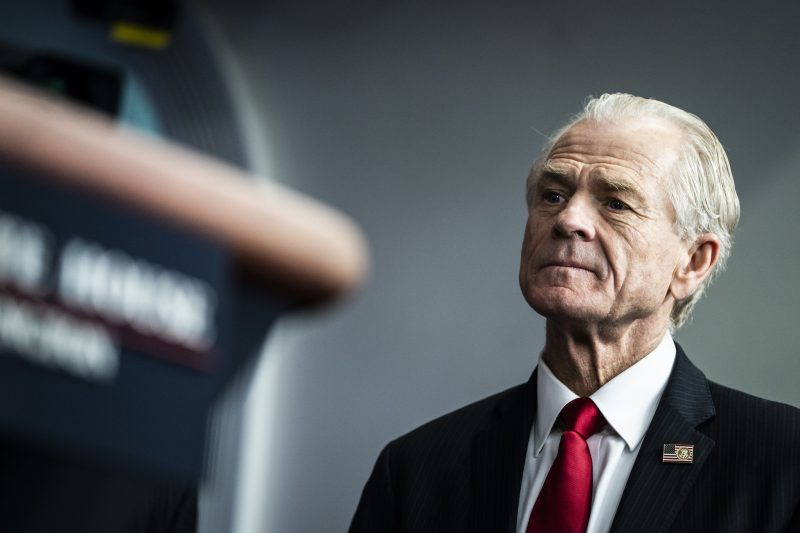In a dramatic turn of events, former Trump aide Peter Navarro has made a bold move by petitioning the Supreme Court to prevent his potential incarceration. Navarro’s plea comes amidst mounting legal challenges and controversies surrounding his involvement in various Trump administration policies. Let’s delve into the intricacies of this intriguing legal saga and examine the implications of Navarro’s actions.
At the heart of Navarro’s legal troubles is the allegation that he violated the law by refusing to comply with a congressional subpoena. This refusal stems from Navarro’s staunch loyalty to former President Donald Trump, whom he served as a key advisor on trade policy. The subpoena demanded Navarro’s testimony in relation to his role in promoting baseless claims of election fraud in the aftermath of the 2020 presidential election.
Navarro’s defiance of the subpoena has landed him in hot water, as he now faces the prospect of being held in contempt of Congress and potentially imprisoned. His decision to appeal to the Supreme Court reflects a last-ditch effort to avoid the dire consequences of his actions. By seeking the Court’s intervention, Navarro is hoping for a legal reprieve that could shield him from the repercussions of his refusal to cooperate with congressional investigators.
However, Navarro’s plea to the Supreme Court raises fundamental questions about the limits of presidential power and the obligations of government officials to uphold the rule of law. Critics argue that Navarro’s actions represent a dangerous erosion of democratic norms, as they highlight the lengths to which some individuals are willing to go in order to protect a political agenda at the expense of accountability and transparency.
On the other hand, supporters of Navarro contend that his refusal to comply with the congressional subpoena is a principled stand against what they see as partisan overreach by lawmakers seeking to undermine the legitimacy of the Trump administration. They view Navarro as a valiant defender of conservative values who is willing to endure personal sacrifice in defense of his principles.
As the legal battle surrounding Navarro’s case unfolds, the Supreme Court faces a momentous decision that could have far-reaching implications for the balance of powers between the executive and legislative branches of government. The Court’s ruling on Navarro’s petition will not only shape the fate of one individual but also set a precedent for how future conflicts between Congress and the executive branch are resolved.
In conclusion, Peter Navarro’s appeal to the Supreme Court highlights the complexities and tensions inherent in the relationship between the branches of government. Whether his plea for protection from incarceration is granted or denied, the outcome of this legal saga will serve as a pivotal moment in the ongoing debate over accountability and the rule of law in American democracy.

